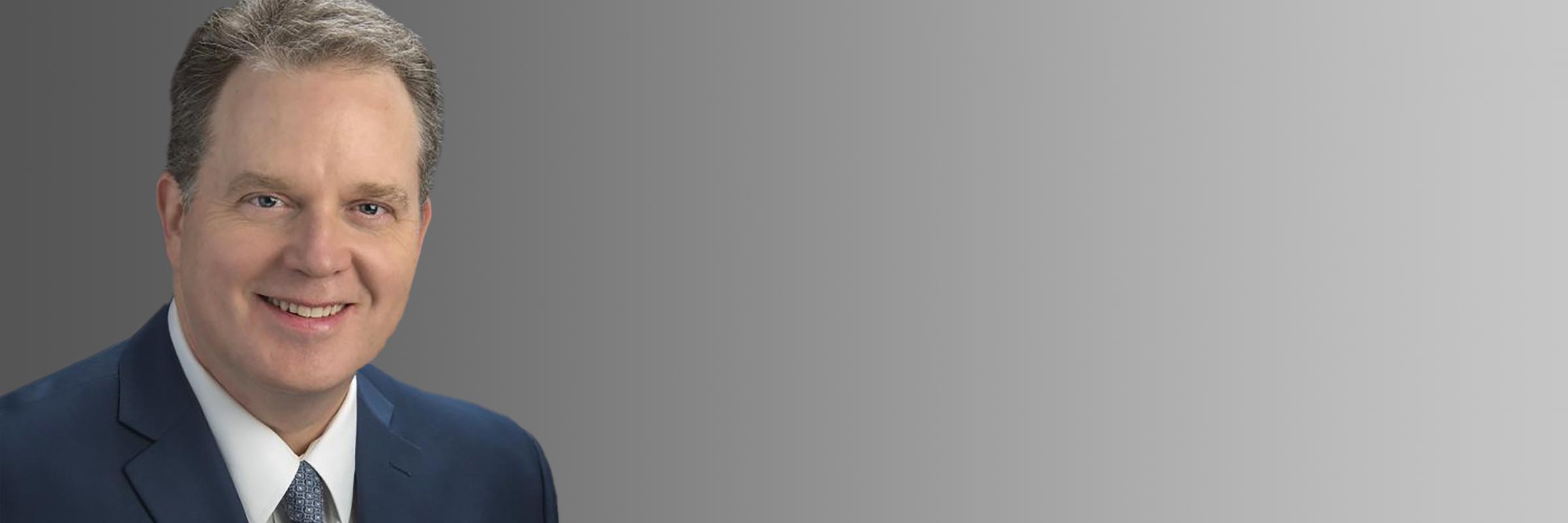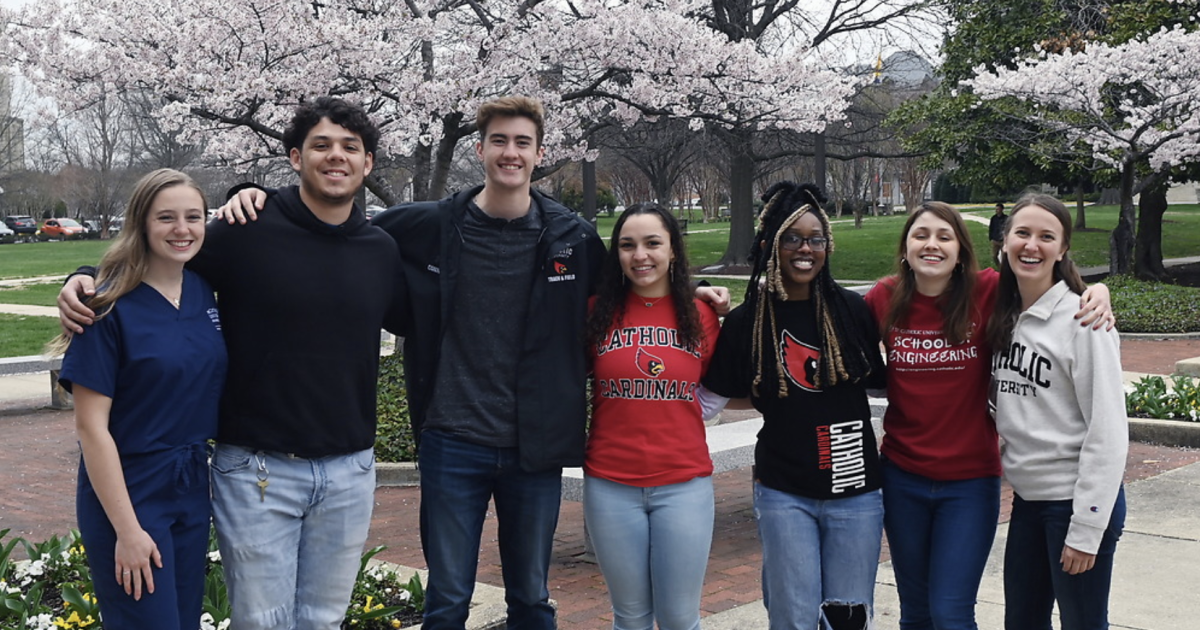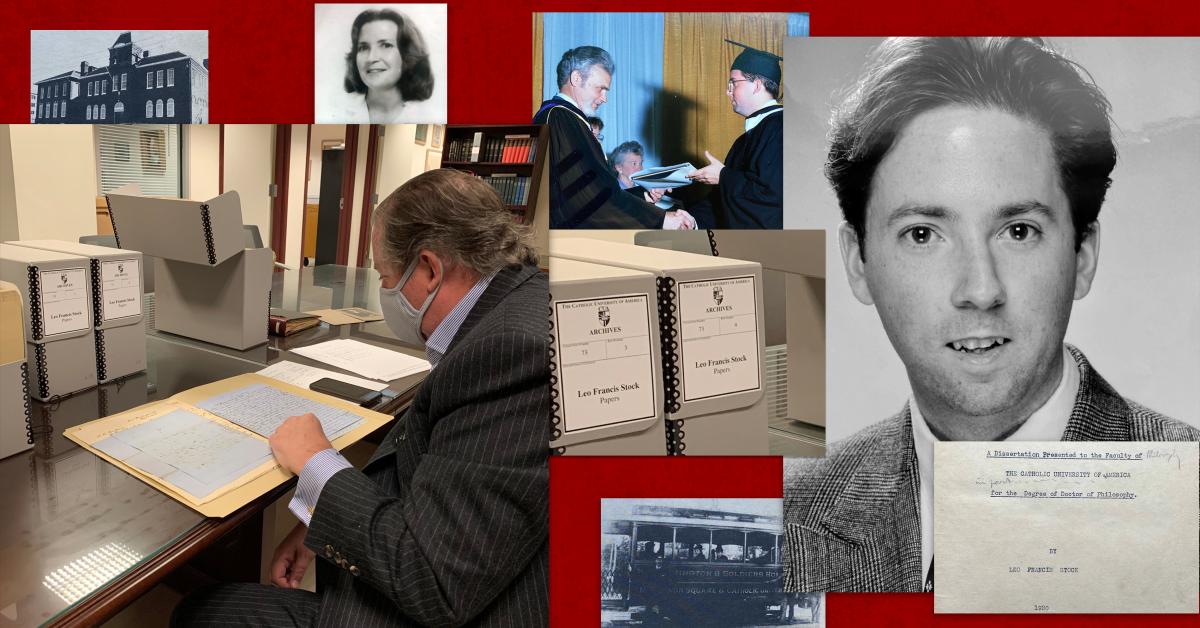We would like to introduce Thomas Smith, M.A. 1988, who returned to the University as dean of the School of Arts and Sciences, one of three new deans who started at Catholic University over the summer. This interview was originally conducted for the 1887 Society's monthly newsletter.
What are you most excited about as you begin your tenure with Catholic University?
Dean Smith: I'm excited to be back at Catholic University for so many reasons. I've only been in this position for a few months, but I recognize the same things that drew me here as a graduate student — a distinctively Catholic approach to the liberal arts, excellence in research and teaching, and a caring faculty dedicated to seeing their students develop in every way.
To our undergraduates, the University promises all the benefits of a liberal arts college experience: small classes, individual mentoring, and the feel of a supportive and tight-knit community. It offers young people a holistic approach to their moral, intellectual, and spiritual development. I think that's one reason why our undergrads love the place so much. At the same time, Catholic University takes pride in being a global research university dedicated to advancing knowledge and to graduate education.
Higher education has been tested over the last 10 years, and COVID has made things even more challenging. But Catholic University's priorities will allow us to weather these storms. In the face of cancel culture, we're dedicated to respecting different viewpoints and free speech. At a time of ferment around issues of race and difference, we recognize we are all brothers and sisters under God, our Father — God clearly likes to have a lot of very different people in His family — so we emphasize both unity and difference. Difference needs to be recognized and celebrated. Unity ensures that difference can be understood and embraced.
In the face of the decline of liberal arts in higher education, we claim that human beings want the whole truth about ourselves and our lives. This includes science, but also essential questions about God, beauty, meaning, purpose, and justice that arise in the humanities and social sciences. All of these perspectives are essential. Catholic University is very well positioned to lead the academy through our current challenges because of what we stand for.
What does Catholic University mean to you, especially as an alumnus?
DS: We are the national university of the Catholic Church, so we occupy a very important place in higher education. In addition to our storied tradition, we represent the 2,000-year-old Catholic intellectual tradition, ensuring its vibrancy and transmission. By these facts alone, we enjoy a prominent status and bear a great responsibility.
Above all, this tradition emphasizes that when we know anything or anyone, we are knowing the mind of God. This is the sacramental principle — every person, every tree, every star, and every grain of sand reflects God's mysterious plan and His overflowing love. Every hair on our head is counted. This means that every person who comes to our conversation has something important to add, and every approach to knowing is important. At a time when the global Church is shifting south, and at a time when the face of the Church is changing in our nation, we have to make this sacramental principle the font of our inquiry, and the basis of our welcome and our engagement with the Church and the culture. This is the moral and spiritual basis of our leadership.
How are you planning to engage students and fellow alumni in the mission of the School of Arts and Sciences
DS: I hope to return to the classroom next year. Any day I get to teach is a good day. In the meantime, it's imperative that I come to know our students better. Right now I'm forming two student advisory boards, one for undergraduates and one for graduate students. We're going to meet periodically throughout the year and the members are going to help me understand the lives of our students.
I also have some unique things planned this year to help me get to know the students. On Valentine's Day, I plan on giving a talk to the students on the importance of dating. On April Fool's Day, I plan on having a "Dean for the Day." Undergrads can enter a lottery and the winner and I will trade places for the day: the student will walk through my schedule and I'll walk through the student's. Generally, I want to make myself available to students any way I can.
In addition to the school's newsletter, we're working to expand our Board of Visitors. I want to put things like strategic planning and generating new ideas for innovative programming on the board's agenda. I'm very much looking forward to meeting our alumni in person when it's safe to do so, especially at events like Cardinal Weekend.
How will you continue to answer the unfolding impacts of the COVID-19 pandemic?
DS: We're living through the biggest crisis in higher education in 100 years. I'm trying to support the faculty any way I can. They've really been working hard this year through challenges I've certainly never experienced in 30 years around higher education. They navigated our transition to online learning last spring. Throughout the summer, there was an enormous amount of planning for in-person instruction. Then events forced us to shift to online learning again, except for the first-year students. Yet there have been no complaints, and the faculty continue to be amazingly productive scholars too.
I'm also trying to find ways of supporting our students as well. I'm particularly worried about students who might feel a sense of isolation, loss, and confusion during a difficult time. Thank goodness our counseling center and student life team are so committed. It's been inspiring to see the ways we support our students.
We also have to learn the lessons from COVID, which I think go in two directions. On the one hand, seeing students struggle away from campus reinforces what we've been saying all along: there's just no substitute for a residential liberal arts environment when it comes to helping young people grow into mature adults. On the other hand, we've learned some really important things about online instruction and how to do it well. We have to figure out how these things will go together.
Why is support to your school's annual fund important to you? How are you planning to spend gifts directed to this fund this year?
DS: The annual fund is more important than ever. Our students' families are experiencing economic hardships we haven't seen since the Great Recession. Our alumni are also experiencing these strains, but still they keep giving. We need to support our students and their families with additional financial aid.
At the same time, faculty have been spending their own income on the instructional costs that came from teaching from their homes. That's how dedicated they are. I'm trying to find ways of funding those costs so our faculty don't have to pay for the materials they need to teach online. We also need to continue to upgrade our capacity to deliver a quality education online.
Who inspires you most in your life?
DS: This will sound corny, but my wife, Suzanne, is my greatest inspiration. She's a loving wife and mother, as well as a child psychologist. Suzanne has dedicated her life to raising a beautiful family and helping young people deal with all the struggles they face. She's my best friend and a constant source of support.
What is your favorite thing to do in D.C.?
DS: My wife and I love the diversity of the restaurants in D.C. The cultural life in the city is so vibrant, as is the history. We are definitely museum people, and love to spend the day in an art gallery or learning about our heritage. We love the Smithsonian, and look forward to seeing the museums we haven't been able to see yet, like the National Museum of African American History and Culture.
Do you have any hobbies or interests outside of campus?
DS: I love to read and I love movies. I'm a gym rat as well. I was really into CrossFit for the last few years until COVID hit, and I look forward to getting back to the gym when this is all over. I also love to work with my hands, particularly on construction. In the last few years, I've gutted and renovated two bathrooms, for example. I did all the framing, electrical work, plumbing, and tiling. I work with my mind so much that I find it really satisfying to get something physical accomplished.
Learn more about the appointment of Thomas Smith as dean of the School of Arts and Sciences. Previously, we shared interviews with Jo Ann Regan, the new dean of the National Catholic School of Social Service, and Mark Ferguson, the new dean of the School of Architecture and Planning.
If you like content like this, please join the 1887 Society to receive monthly, in-depth newsletters like this one.
Published on: Wednesday, December 9, 2020
Campaign Theme: Faculty Excellence
Division:
Tags: 1887 Society, Department of Politics




